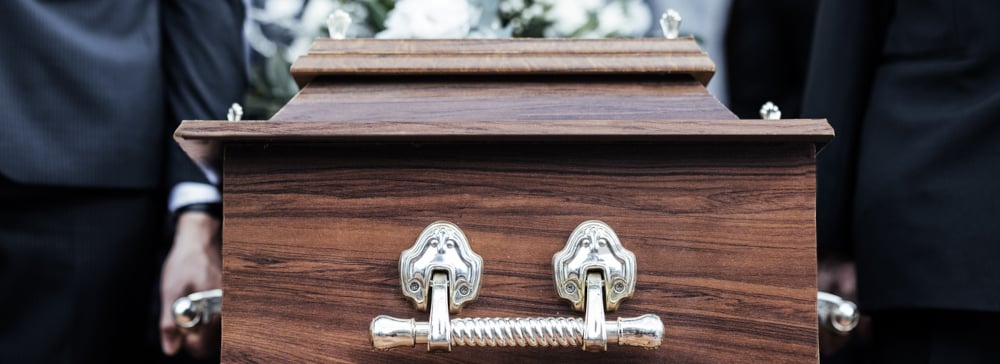Table of Contents
Punitive means “to punish.” Punitive damages are designed to punish the party at fault. When a loved one dies because of another party’s negligence or recklessness, the family may file a wrongful death lawsuit. While the loss of a beloved family member is always tragic, most wrongful death cases will not involve punitive damages. If the behavior of the at-fault party was particularly egregious, punitive damages may come into play.

No amount of money can compensate you for the loss of your loved one. All the money in the world can’t bring them back. However compensation in a wrongful death case can help you and your family recover from the financial loss caused by your loved one’s demise. These damages are considered compensatory, as they are meant to compensate survivors for the loss of their family member.
Wrongful death case damages include:
In Florida, only the personal representative of the decedent’s estate can file a wrongful death lawsuit. Any damages from the lawsuit are paid to the estate for the benefit of surviving relatives.
Surviving relatives considered beneficiaries in a Florida wrongful death lawsuit include the spouse, children, and parents if the victim was a minor. Blood relatives of the decedent, as well as adopted siblings, may collect damages if wholly or partly dependent on the victim for financial support.
Under normal circumstances, damages are based on compensation. Under truly despicable conditions, punitive damages are awarded to send a message that the defendant’s behavior was completely out of line. The defendant should learn that they should never act in this way again.
The purpose of punitive damages is not to award additional compensation to the plaintiff but to punish the defendant.
While punitive damages, also known as exemplary damages, punish the defendant, they also serve as a warning that such behavior is intolerable. By setting an example regarding the consequences of such gross negligence, other parties know there is a price to pay for such inexcusable actions.
The surviving family members of the person killed by the defendant may take some comfort in knowing that the defendant may never again harm another person as they did your loved one.
When a defendant acts in a truly reprehensible or malicious manner, a jury may decide to award punitive damages. In these cases, jurors determine that the defendant’s actions or lack of action were so reckless that punitive damages are warranted.
Wrongful death damages are based on the recklessness or negligence of the defendant. When gross negligence or intentional misconduct is involved, the defendant acted with the knowledge that their behavior was reckless. The plaintiff’s attorney must prove that the defendant acted with gross negligence with specific evidence of their reckless disregard for the lives of others. That means that the defendant’s conduct was so “reckless or wanting in care that it constituted a conscious disregard or indifference to the life, safety, or rights of persons exposed to such conduct.”
With intentional misconduct, the defendant knew their conduct was wrong and that there was a high probability that injury to another party may ensue. Despite knowing this, they intentionally pursued this misconduct, resulting in the serious injury or death of another party.
The standard of proof is high, which is one of the reasons punitive damage awards are relatively rare.
The plaintiff’s attorney must make the case that punitive damages are appropriate in a wrongful death case. For instance, if your loved one was killed by a drunk driver, your lawyer may argue that the circumstances were so appalling that punitive damages should be awarded. Perhaps the drunk driver ran through red lights at a high speed or drove the wrong way on a one-way street. The defendant acted with complete disregard for the safety of others, and because of this, your loved one lost their life.
Road rage incidents resulting in someone’s death are another area in which a strong case might be made for punitive damages.
Most wrongful death cases are settled. When a wrongful death lawsuit is settled out of court, there is no opportunity for punitive damages.
Punitive damages are never requested in an initial complaint. The plaintiff must obtain leave from the trial court for amending the complaint prior to asserting punitive damages. This assertion must include an evidentiary showing providing a reasonable basis for punitive damages recovery. Plaintiffs must establish the factual allegations forming their claim. In most cases, the claim for punitive damages is based on responses obtained during the discovery process. All evidence proffered must prove admissible.
It is up to the judge at trial to determine whether the jury may consider punitive damages. If the judge decides to allow the jury to consider punitive damages, that does not mean the plaintiff will receive them. The jury decides whether to award punitive damages based on various factors. These include the degree of intentional misconduct or gross negligence demonstrated by the defendant. The amount of the punitive damages award is always subject to the severity of the defendant’s conduct.
Many states do not place caps on punitive damage awards, but that is not the case in Florida. The cap on punitive damages awards in Florida is the higher of three times the amount of compensatory damages, or $500,000. If you were awarded $200,000 in compensatory damages, your punitive damage award could amount to $600,000. If you were awarded $100,000, your punitive damage award could not exceed $500,000.
There is an exception to this cap. Under Florida statute 768.73, if it is determined that the wrongful conduct “was motivated solely by unreasonable financial gain” and the “unreasonably dangerous nature of the conduct,” along with a great likelihood of injury as result, was actually known by the “managing agent, director, officer, or other person responsible for making policy decisions on behalf of the defendant,” punitive damages may be awarded in an amount not to exceed more than four times the amount of compensatory damages or $2 million, whichever is greater.
There is no cap on punitive damages if it is determined that the defendant specifically intended to harm the plaintiff and did so. If the defendant committed a homicide, the criminal aspects of the case are entirely separate from the civil wrongful death lawsuit filed by the family.

If you have lost a family member because of another party’s negligence, recklessness, or deliberate actions, you need the services of an experienced Boca Raton wrongful death attorney at Kogan & DiSalvo. Our compassionate staff can help you through this difficult time while working hard to obtain the compensation you deserve.
Schedule a free, no-obligation consultation. We will review your claim and advise you of your options. We will also let you know whether the circumstances involving your loved one’s demise may warrant punitive damages.
If you are injured and unable to come to us,
our attorney will come to you - there is no charge for us to do so.